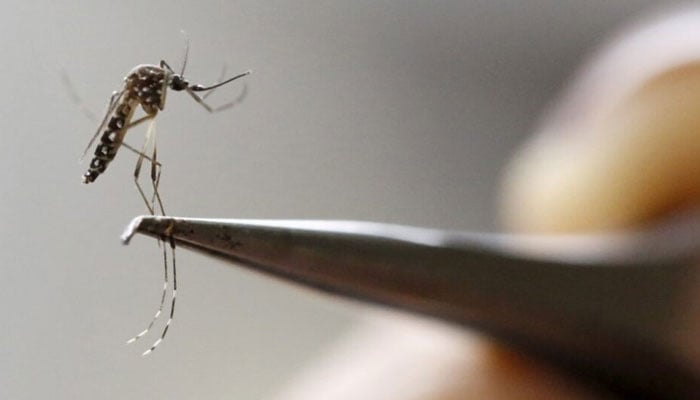
- Study detected 2 Zika virus cases between August, November 2021.
- Karachi had reported hundreds of cases of dengue-like disease.
- However, affected patients back then had tested negative for dengue.
ISLAMABAD: Researchers have finally unraveled the cause of the mystery illness that struck Karachi back in 2021 finding that the Zika virus was behind the disease that had affected hundreds of people in the country’s financial hub.
United World Antiviral Research Network (UWARN) Principal Investigator Dr Najeeha Talat Iqbal, while speaking to The News, revealed that the investigators at Aga Khan University (AKU) in Karachi detected two cases of the Zika virus in 2021 during an outbreak of a mysterious viral illness which was later confirmed through metagenomics at the Gale Lab at the University of Washington in Seattle.
“During our study, we confirmed the presence of the Zika virus in Pakistan, which had not been previously detected,” said Dr Talat while referring to a study involving patients with acute viral illnesses between the ages of 1 and 75 from AKU wards, outpatient clinics, and physician referrals.
Meanwhile, 44 patients, from the Arbovirus cohort, were enrolled out of which six of whom were NS1 negative with acute febrile illness, vomiting, and diarrhoea. These cases were enrolled between August and November 2021, she added.
The revelation comes as the publication, back in November 2021 had reported the spread of a dengue-like disease with symptoms including fever and reduced platelets and white blood cell count.
However, the affected patients back then tested negative for dengue virus.
During its investigation, the UWARN — a multi-centre study involving Pakistan, Senegal, South Africa, Brazil, and Taiwan — commenced its investigation and detected two single and two mixed infections of Zika and Dengue confirmed by serology and PCR in 2021 and 2022.
It is to be noted that the Zika virus, as per the World Health Organisation (WHO), is transmitted via Aedes mosquitoes’ bite.
Though most people do not reflect any symptoms when affected by it, some develop rash, fever, conjunctivitis, muscle and joint pain, malaise and headache that can last anywhere from two to seven days.
Elaborating on the forum’s work, Dr Iqbal said that the study aims to characterise new emerging viruses and conduct active surveillance of arboviruses in UWARN centres.
She also highlighted that the AKU has been collaborating with UWARN for active surveillance of arboviruses, including dengue, chikungunya, and other hemorrhagic viruses.
Confirming the Zika virus finding, AKU Head of Infectious Disease Dr Faisal Mehmood acknowledged that he was aware of the presence and detection of the disease in the country which now has been confirmed to be circulating in Karachi’s environment.
Meanwhile, Sindh Health Department officials have also confirmed that hundreds of cases of dengue, chikungunya, and other vector-borne illnesses are being reported in the metropolis every week.
The city, as per an official, has recorded at least 10 fatalities due to dengue fever since January 2024.
Whereas the number of confirmed dengue cases is in the hundreds, with hundreds of others left hospitalised with chikungunya at various public and private health facilities, he added.
However, he maintained that he wasn’t aware of the presence of the Zika virus in Karachi, as they had not been officially informed about its presence in Pakistan. However, cases of viral illnesses testing negative for dengue have also been reported at different health facilities.
The health department official’s remarks come as the city, as per the experts, is currently gripped with a dengue and chikungunya-like disease.
Furthermore, National Institute of Health (NIH) officials in Islamabad have also denied being aware of the presence of the Zika virus stressing that that no lab or health institution had formally reported its presence to the NIH so far.